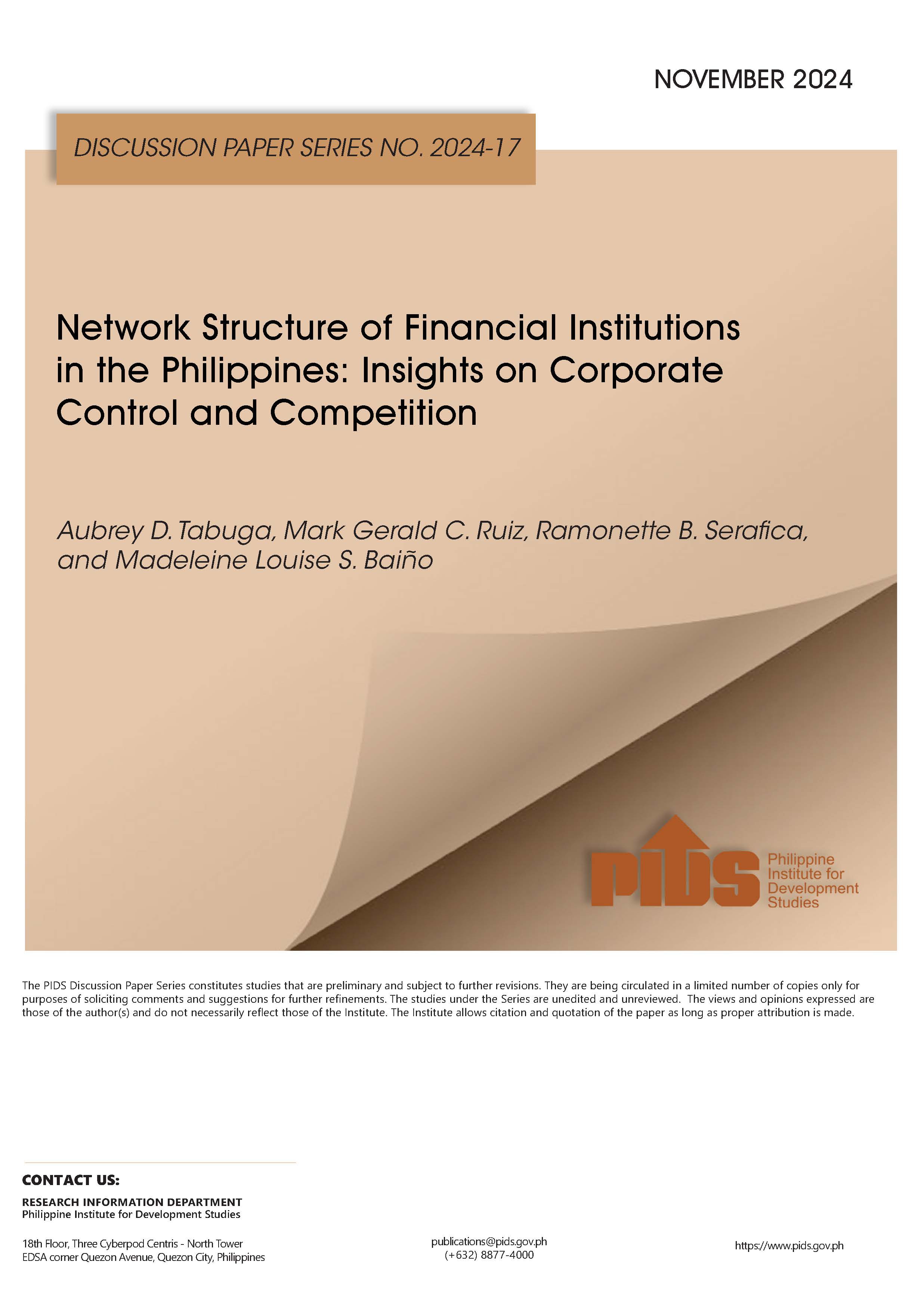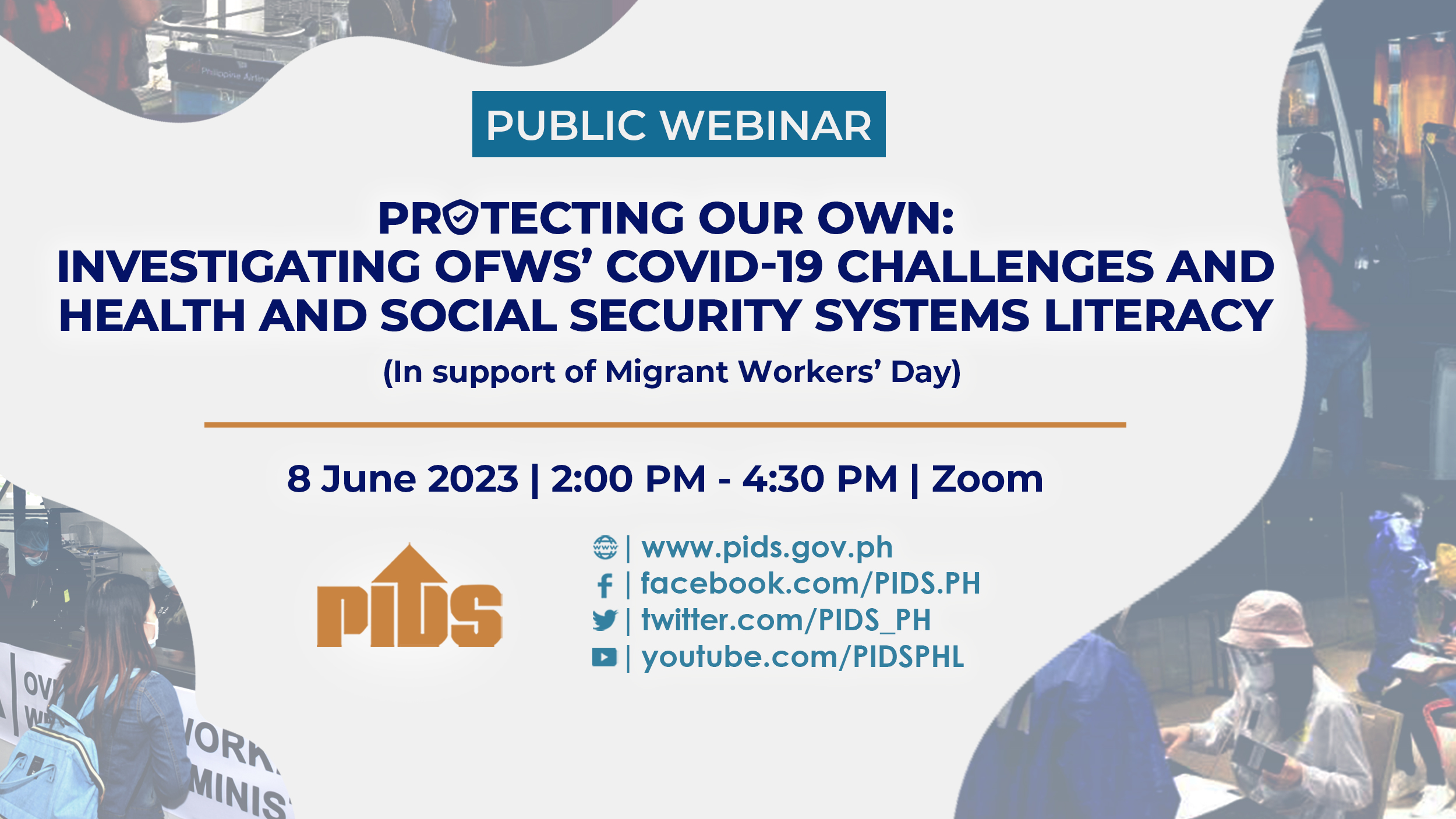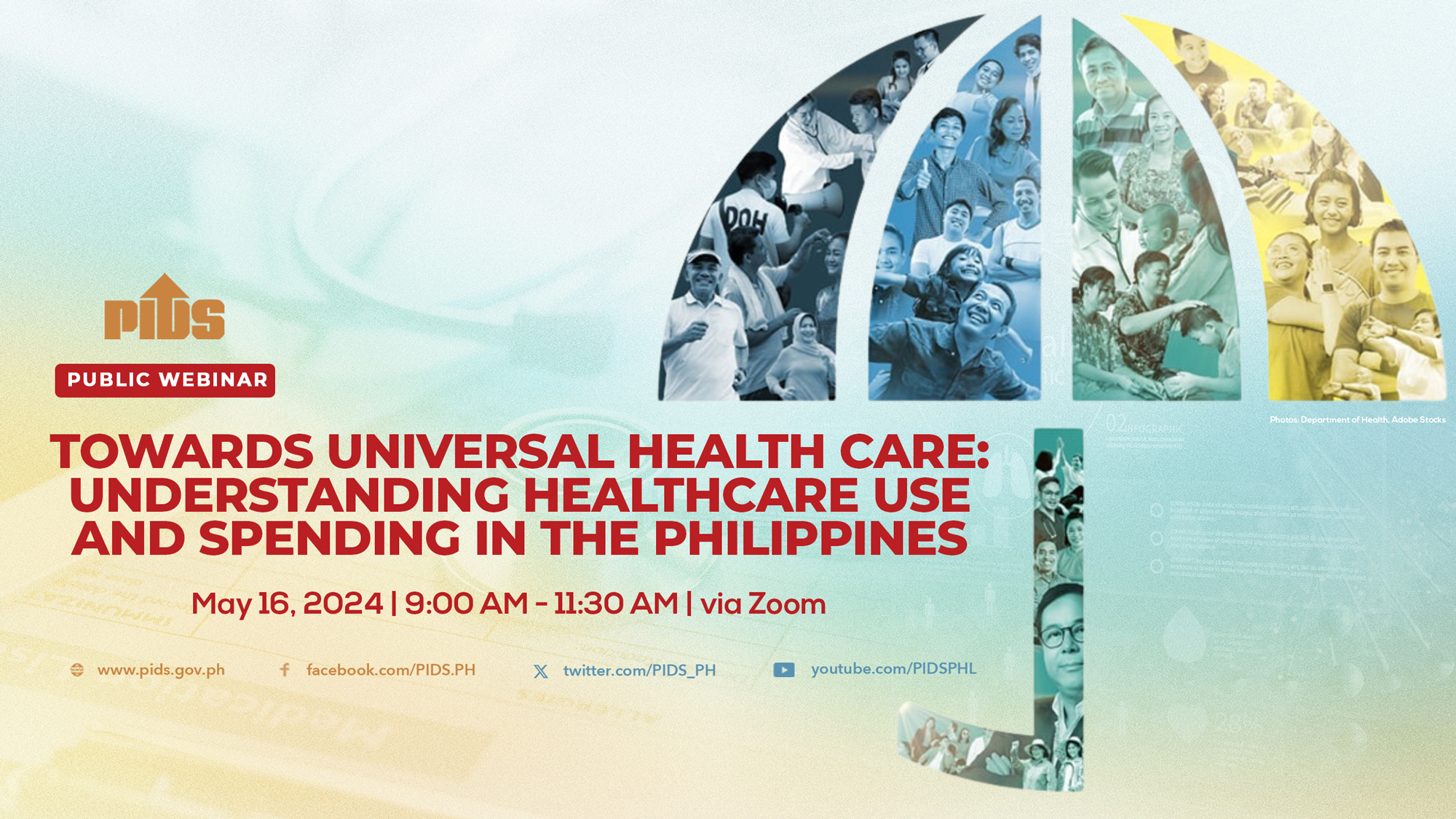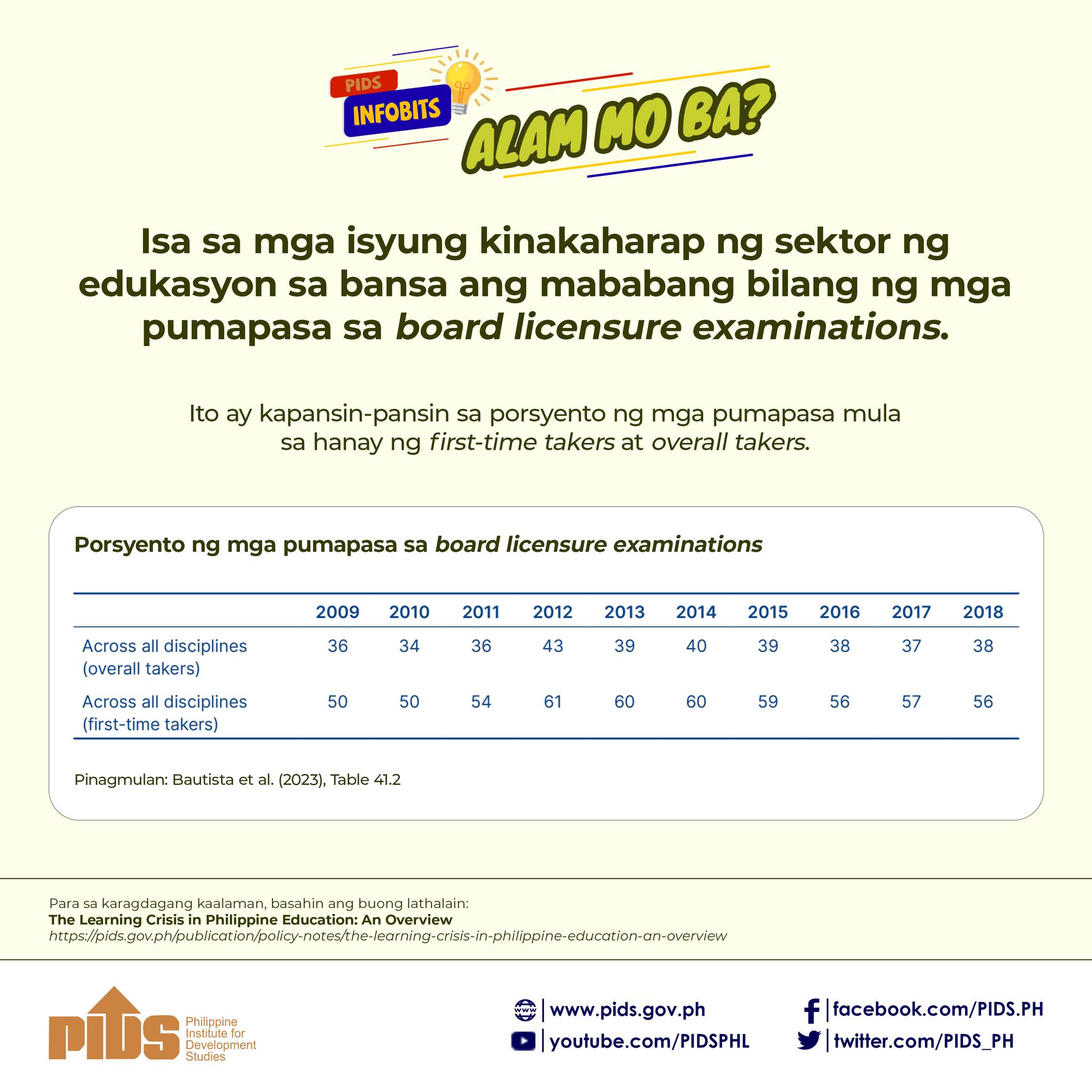OVER 40% of Filipinos not employed in the formal sector have no health insurance coverage, according to the findings of a study by Philippine Institute for Development Studies (PIDS).
The coverage rate for Individually Paying Program (IPP) at the national level “ranges between 56% and 58%, depending on the estimate of potential dependents.”
“This indicates that over 40% of the population who do not qualify as dependents and are not employed in the formal sector has no health insurance coverage,” PIDS said.
IPP is the voluntary component of the country’s social health insurance. Enrolled in this scheme are individuals who opt to pay for their own membership including the self-employed, self-earning, and those in occupations without a formal employer-employee relationship.
According to PIDS, coverage rates came in as low as 3% in Sulu and Tawi-tawi, a finding it called “abysmal.”
PIDS said the low coverage rates maybe due to respondents “incorrectly classifying themselves under formal private establishments instead of under the informal sector categories.”
The study noted that Bicol and Eastern Visayas Regions have among the lowest coverage rates at 23.58% and 28.95%, respectively.
PIDS said the availability of health care resources appears to be an important consideration in terms of the level of coverage in the province, with more private hospitals making it more likely for a province to have higher coverage rates.
“This indicates that the existence of private hospitals seemingly encourages individuals to enroll into the health insurance scheme, presumably with the notion that if care is sought, they can avail of private medical services with the use of PhilHealth,” it said.
PIDS noted that income levels do not appear to be a factor in determining the level of insurance coverage.
PIDS recommended channelling public funds into the health insurance system instead of to public providers and to examine depth of the coverage of the IPP.
“There is an impression that the coverage offered by the health insurance will not account for the majority of their health expenditures,” it said, adding that individuals will see no need to avail of health insurance if they hold such views. --
The coverage rate for Individually Paying Program (IPP) at the national level “ranges between 56% and 58%, depending on the estimate of potential dependents.”
“This indicates that over 40% of the population who do not qualify as dependents and are not employed in the formal sector has no health insurance coverage,” PIDS said.
IPP is the voluntary component of the country’s social health insurance. Enrolled in this scheme are individuals who opt to pay for their own membership including the self-employed, self-earning, and those in occupations without a formal employer-employee relationship.
According to PIDS, coverage rates came in as low as 3% in Sulu and Tawi-tawi, a finding it called “abysmal.”
PIDS said the low coverage rates maybe due to respondents “incorrectly classifying themselves under formal private establishments instead of under the informal sector categories.”
The study noted that Bicol and Eastern Visayas Regions have among the lowest coverage rates at 23.58% and 28.95%, respectively.
PIDS said the availability of health care resources appears to be an important consideration in terms of the level of coverage in the province, with more private hospitals making it more likely for a province to have higher coverage rates.
“This indicates that the existence of private hospitals seemingly encourages individuals to enroll into the health insurance scheme, presumably with the notion that if care is sought, they can avail of private medical services with the use of PhilHealth,” it said.
PIDS noted that income levels do not appear to be a factor in determining the level of insurance coverage.
PIDS recommended channelling public funds into the health insurance system instead of to public providers and to examine depth of the coverage of the IPP.
“There is an impression that the coverage offered by the health insurance will not account for the majority of their health expenditures,” it said, adding that individuals will see no need to avail of health insurance if they hold such views. --











